Risk might be an inevitable part of our future but experts at this year’s Automotive Logistics and Supply Chain Mexico conference highlighted opportunities to manage that and build resilience into the automotive supply chain with collaboration and the latest technologies.

At the recent Automotive Logistics and Supply Chain Mexico (ALSC Mexico) conference, leading executives from across the sector had the chance to reconvene in person for the first time since the pandemic.
Recovering from the impacts of Covid-19 has not been straightforward. In fact, recovery has been complicated by the consequent global crises stemming from it, including disruption to the supply of semiconductors and the ’great resignation’ of labour. However, there are new opportunities for Mexico going forwards, including through the electrification of the vehicle and the digitalisation of processes that support better collaboration and build resilience against risk. Here are five of the key takeaways from ALSC Mexico 2022.
Recovery is not instant
This is the sort of lesson we get told a lot in our personal lives, from the impacts of a hard workout to getting over a breakup. However, it is something that is strangely hard to accept in a business setting. The coronavirus pandemic was instant and dramatic but there was an assumption for a long time that somehow, one day, we would all get back to normal.
The ‘new normal’ that we’ve been promised is not very normal. Trying to pretend that the recovery can happen faster than it will is a mistake, that will only lead to bigger problems, according to experts at this year’s ALSC Mexico.
The situation is more complex and its global. Shortages of workers in trucking in the US directly impact availability of parts or vehicles in Mexico. Shutdowns in China continue to impact supply chain across the world. The Russian invasion of Ukraine has disrupted production throughout Europe and sent OEMs looking for essential components elsewhere.
Volkswagen’s Peter Koltai acknowledged that its Puebla plant had lost tens of thousands of production units to the pandemic and the consequent chip shortage. He said the future looked just as complex but it was a complexity that the industry was coming to understand better.
EV transformation is coming quickly
Ten years ago, electrification was seen as a quirky idea for certain markets but not something the majority of the automotive industry would be scrambling towards. In 2022, that picture is very different, especially in Mexico.
Electrification of domestic transport is coming but Mexico also has a key role to play in the move to EVs across the Americas. President Biden’s Inflation Reduction Act came up repeatedly at this year’s conference for its stipulation that components need to be sourced or recycled from North America, a sourcing strategy Mexico will play an important part in.
Guido Vildozo, from S&P Global, explained Mexico’s roadmap to EV production and, in particular, the building of battery manufacturing facilities that will power the future. What was a far-off idea is now a reality, with ground being broken on new EV factories while other existing facilities are being converted.
Tools are for people
One of the best ways to manage both massive industry transformation and the ongoing recovery from a crisis is having better visibility of processes and a more thorough understanding of what is going on, including risks or bottlenecks.
Francisco Bravo Gómez, of Audi Mexico, said that digitalisation could only happen if it was tailored to the needs of the people who would use the systems and with their full buy-in. Despite what we might think about the age of digitalisation, it is the hearts and minds of humans that form the most important part of any system and Gómez advocated for the end users of any system to be the testers.
Opportunities are there to be taken
Mexico’s automotive industry has two major strengths, as highlighted at the conference. A hugely flexible workforce, which was praised for adaptability and energy to fix problems, and an opportunity to respond to international legislation to maximise opportunities.
In the opening keynote we heard from Nissan’s Chris Styles, who emphasised localisation; Mexico’s opportunity comes from being able to source almost every element of automotive production, including manufacturing equipment, within its own economy or nearby countries. Removing the risks of global shipping and making freight flow easier is a clear advantage in a disrupted world.
Changes to infrastructure will help promote Mexico’s role in the automotive industry across the Americas. Toyota’s Lizette Gracida was clear that policy and academia have essential roles to play in Mexico’s transformation into a hub of green, world-class technologies, with the securing a supply of clean, renewable energy a priority.
Collaboration and communication is key
Across the industry, from OEMs to tier suppliers and third party logistics providers, one message was very clear: transparency and communication are the only way that crises will be mitigated or managed going forwards. Beyond the coronavirus, intense disruption is expected for years to come from climate change, global political events and risks of which we are not yet aware.
Nissan’s Ivan Davila advocated for extreme flexibility and a realistic look at a whole picture. If one thing can’t be done, what are the alternatives? That of course is only possible if every party in a supply chain is connected and honest with each other.
Siegfried Jung, of BMW, said that the semiconductor crisis is so severe they can only predict up to 10 days ahead of supply and that was with daily communication to all parties.
It is good news that there was agreement across the industry about that. OEMs, tier suppliers and third party logistics companies were all clear: the future is in closer collaboration, long-term partnerships and in developing trust to manage risks together.


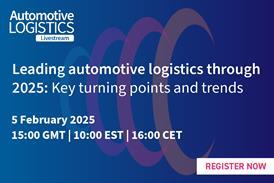


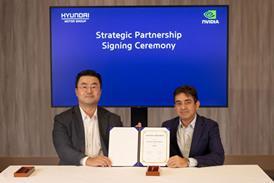



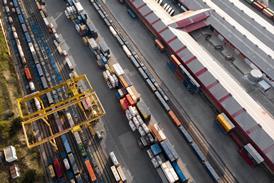
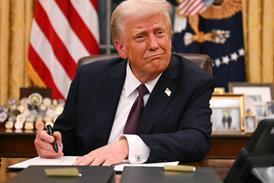







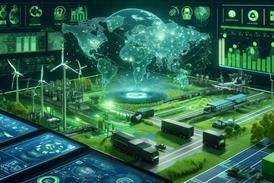


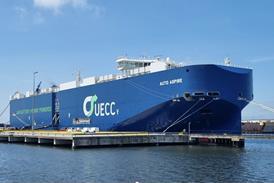
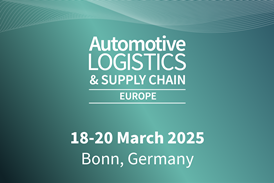




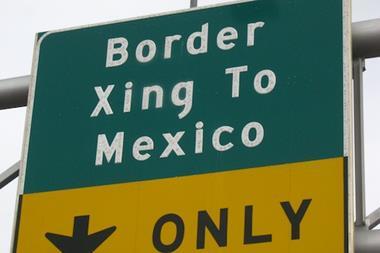


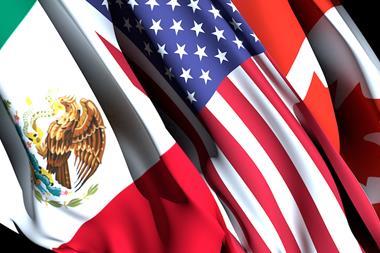
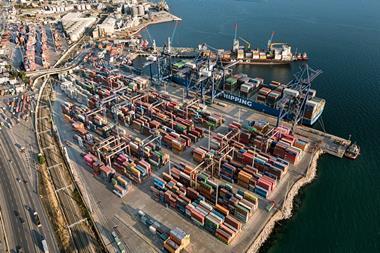




No comments yet